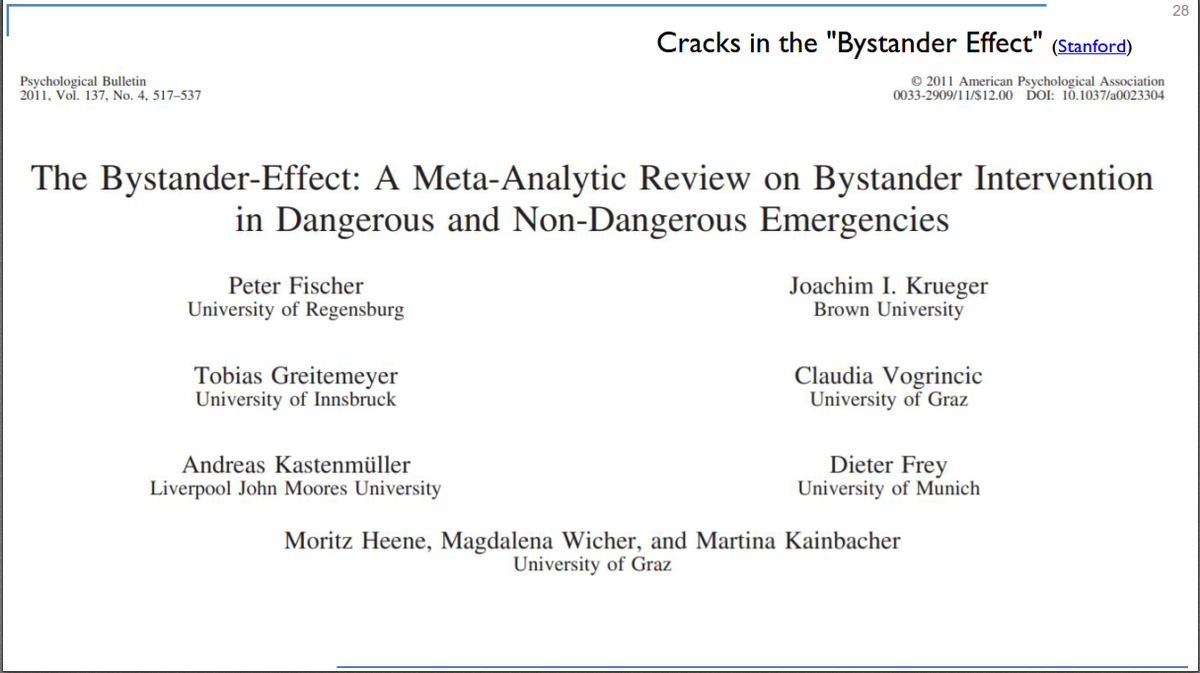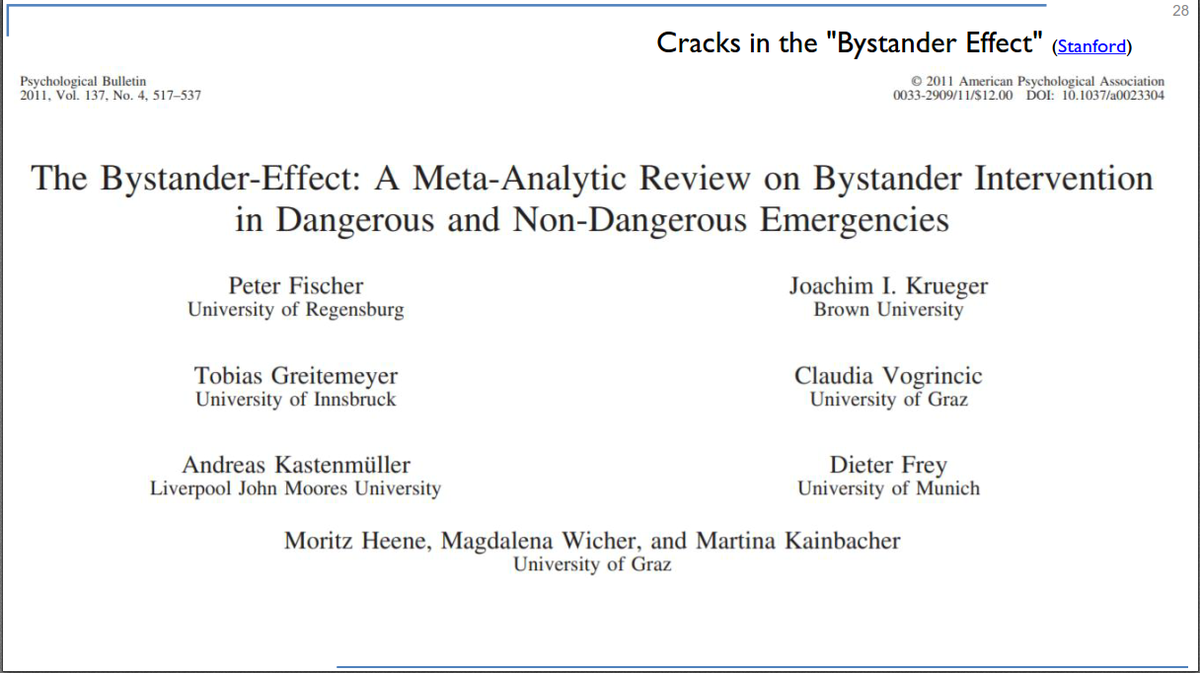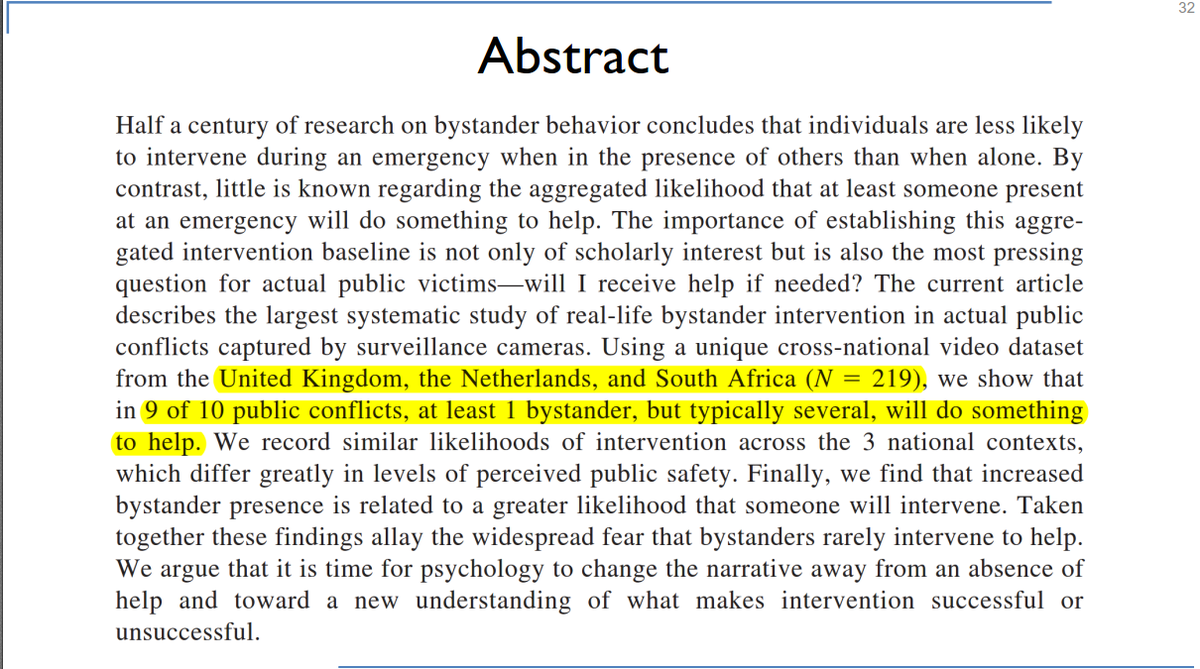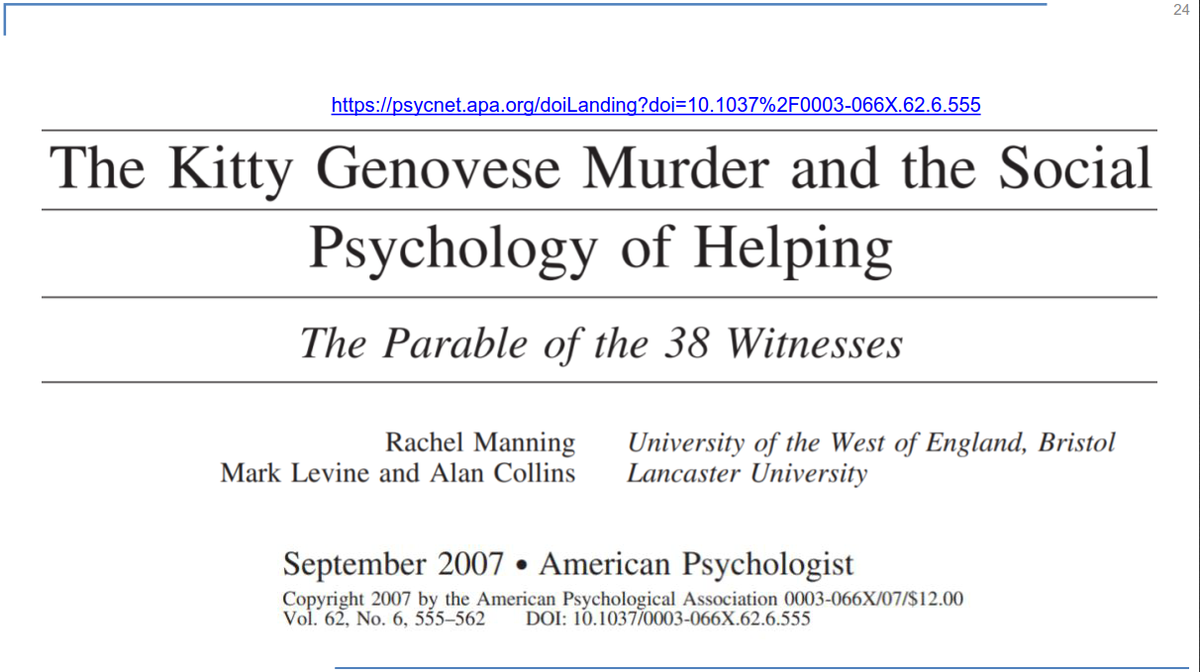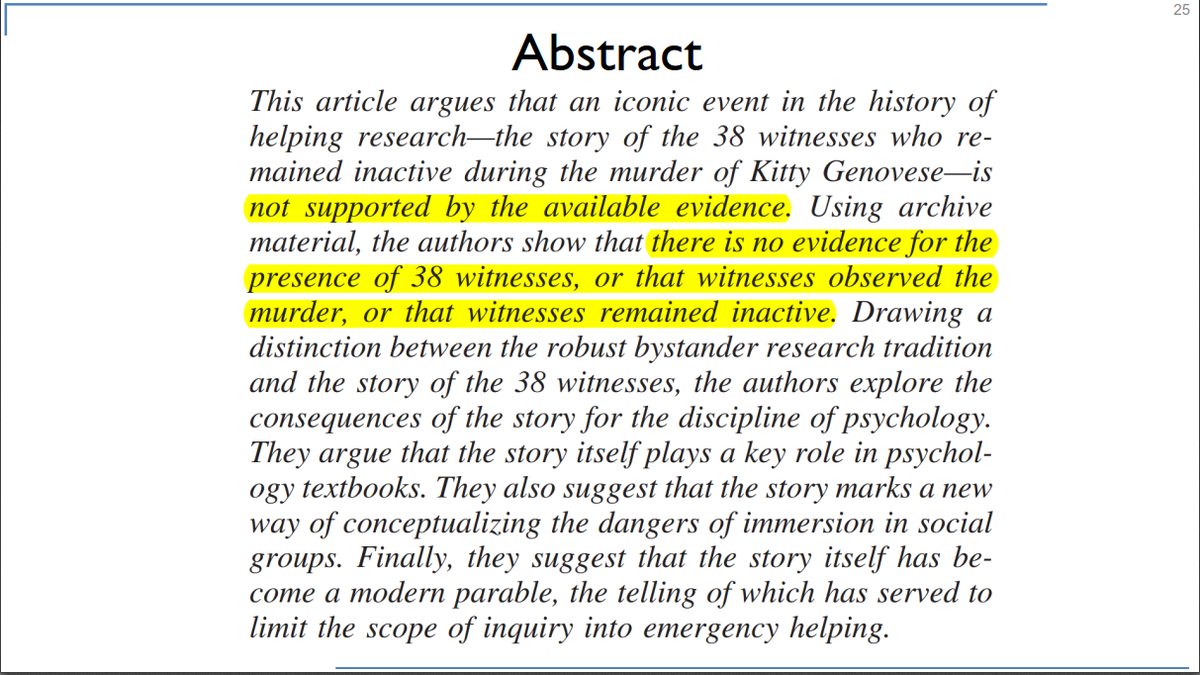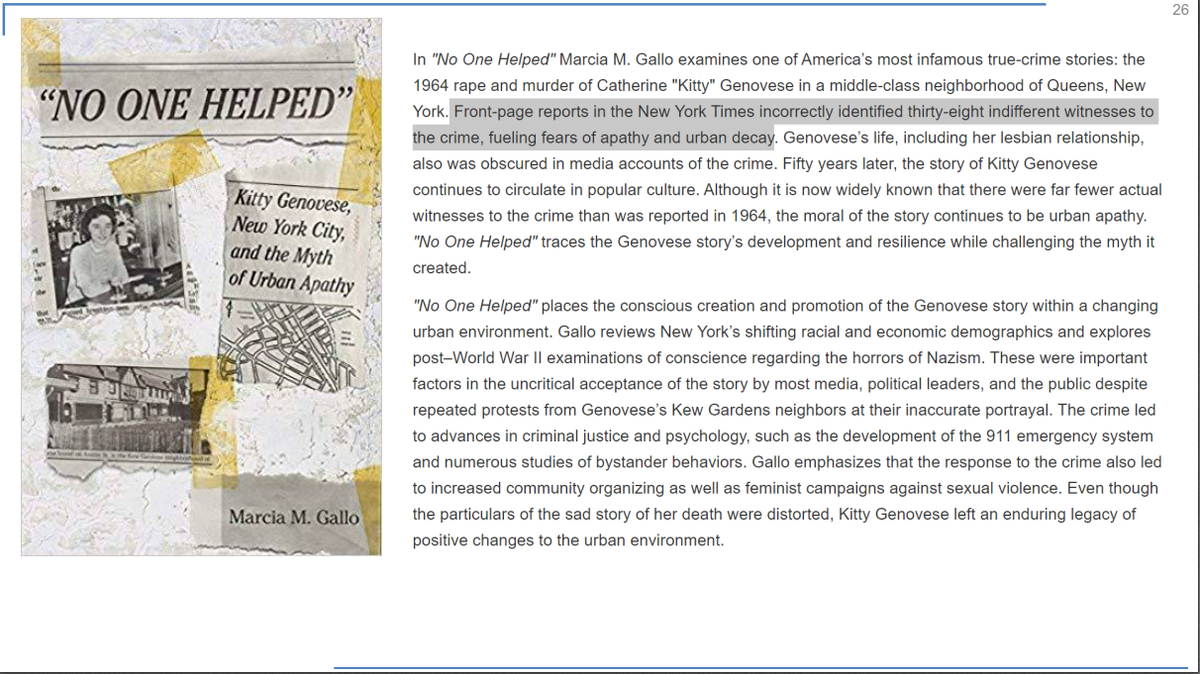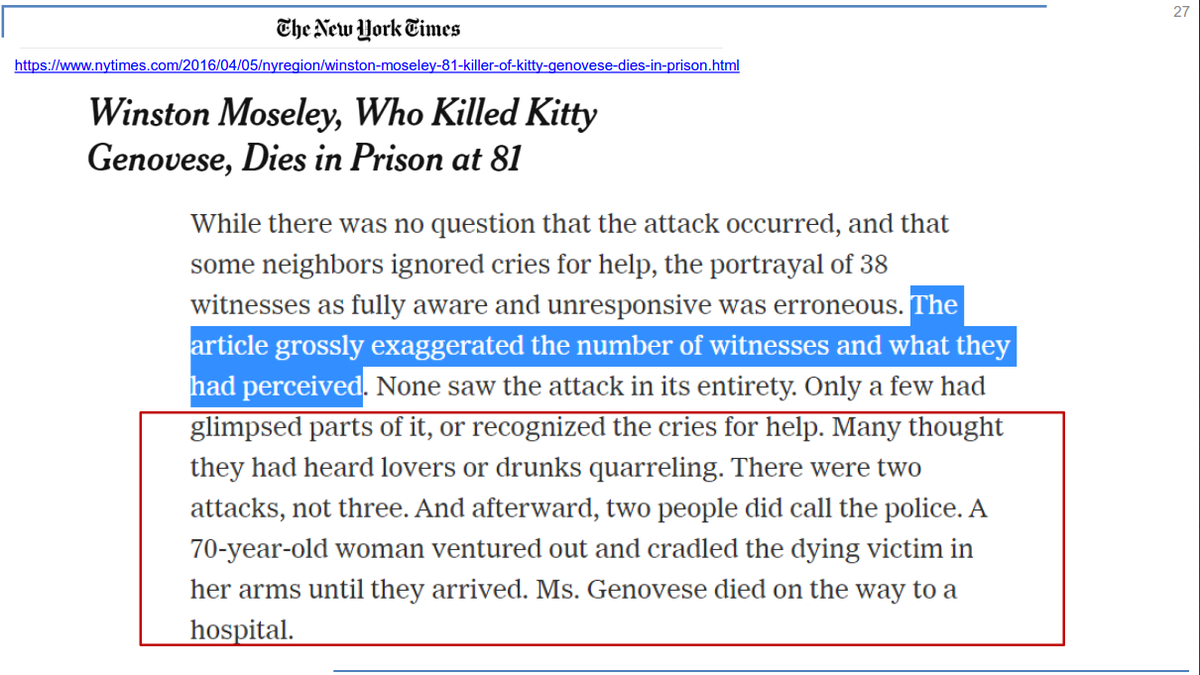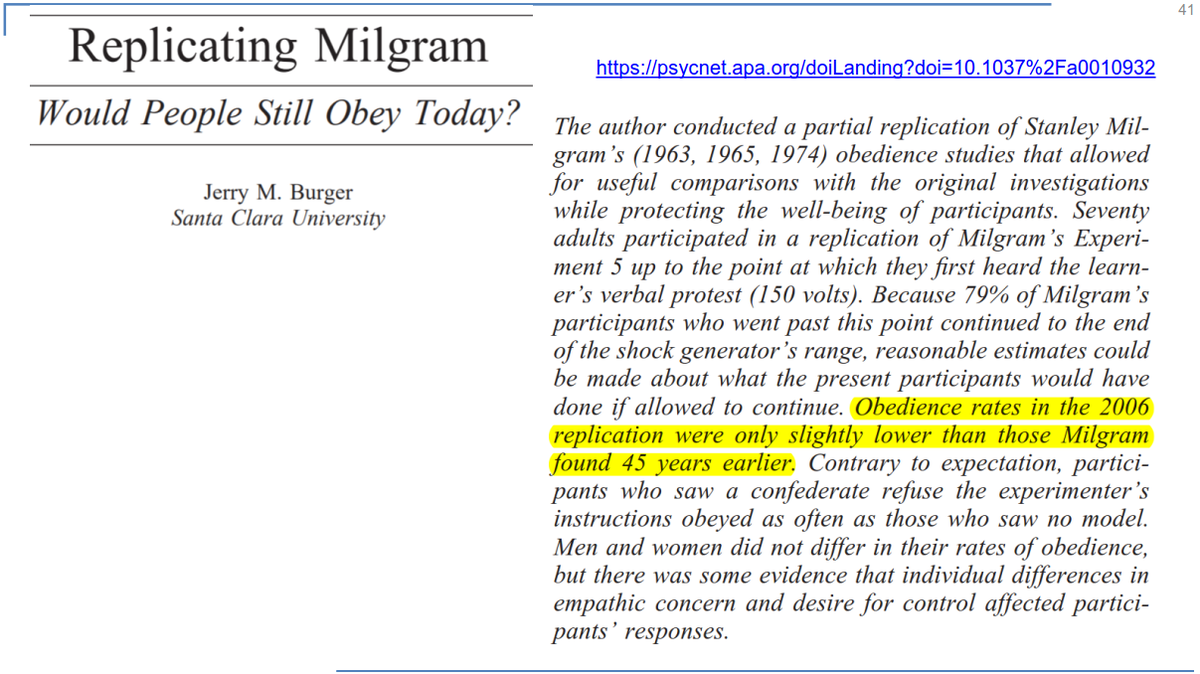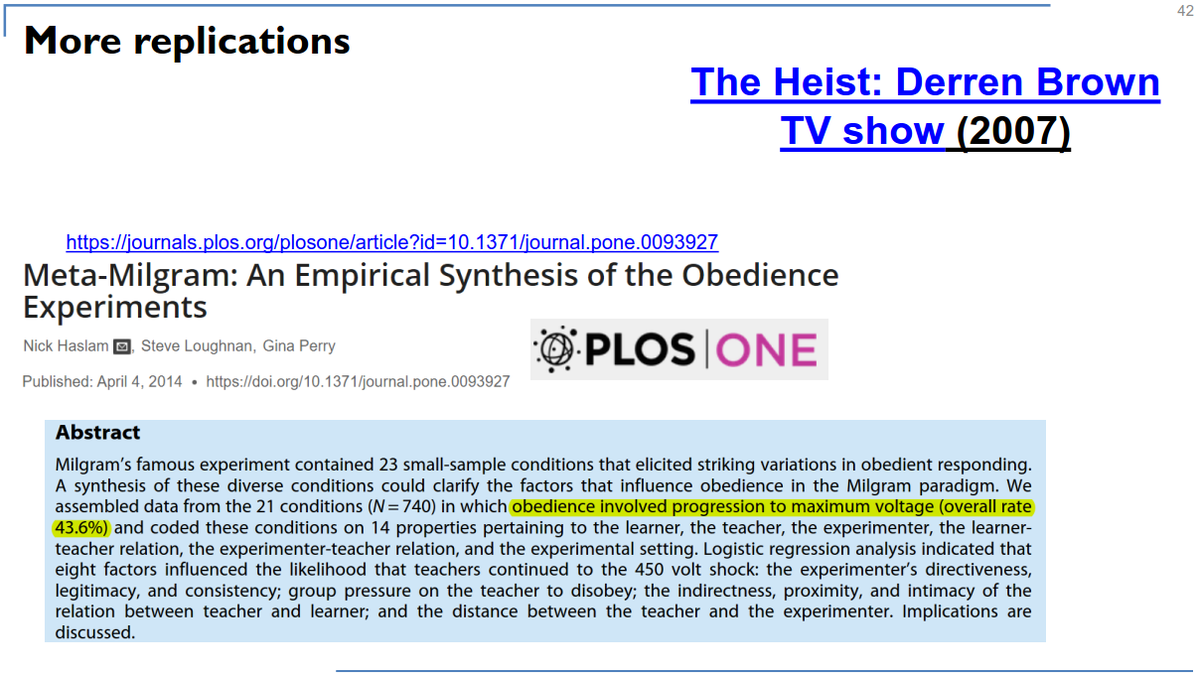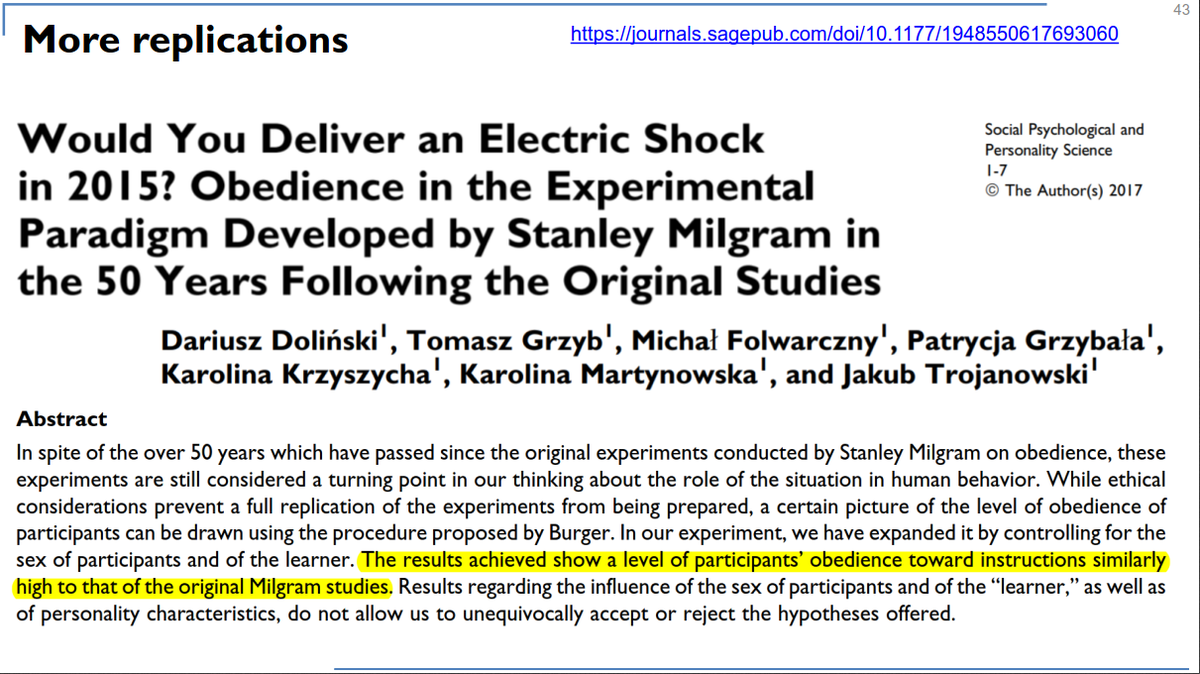We social psychologists really need to discuss "Humankind" by @rcbregman.
I finished listening to audiobook yesterday. Putting aside inspirational message, I think social psychologists should read chapters regarding the classic findings in social psychology.
Explanation https://abs.twimg.com/emoji/v2/... draggable="false" alt="👇" title="Rückhand Zeigefinger nach unten" aria-label="Emoji: Rückhand Zeigefinger nach unten">
https://abs.twimg.com/emoji/v2/... draggable="false" alt="👇" title="Rückhand Zeigefinger nach unten" aria-label="Emoji: Rückhand Zeigefinger nach unten">
I finished listening to audiobook yesterday. Putting aside inspirational message, I think social psychologists should read chapters regarding the classic findings in social psychology.
Explanation
Background: I& #39;ve been teaching social psychology focusing on understanding replication crisis with understanding social psychology.
One lecture focused on "Human Nature".
Course materials: https://osf.io/ayxr4/
My">https://osf.io/ayxr4/&qu... argument:
Findings about "humans inherently bad" are flawed.
One lecture focused on "Human Nature".
Course materials: https://osf.io/ayxr4/
My">https://osf.io/ayxr4/&qu... argument:
Findings about "humans inherently bad" are flawed.
To my great surprise, all that I& #39;ve taught in that class was covered in great detail with remarkable storytelling by @rcbregman.
Example #1:
Humankind Chapter 7: Stanford Prison.
Not an experiment, staged, unethical, flawed to the core.
My slides:
Example #1:
Humankind Chapter 7: Stanford Prison.
Not an experiment, staged, unethical, flawed to the core.
My slides:
Example #2:
Humankind Chapter 9: Bystander effect
Overhyped, misunderstood. Replications and meta-analyses show a much more complex phenomenon.
My slides:
Humankind Chapter 9: Bystander effect
Overhyped, misunderstood. Replications and meta-analyses show a much more complex phenomenon.
My slides:
Example #3:
Humankind Chapter 9: Kitty Genovese
All we thought we knew about this case seems wrong.
My slides:
Humankind Chapter 9: Kitty Genovese
All we thought we knew about this case seems wrong.
My slides:
Example #4:
Humankind Chapter 8: Milgram
Yes, I agree, this one does seem to hold & replicate. Yet, @rcbregman offers new insights.
My slides:
Humankind Chapter 8: Milgram
Yes, I agree, this one does seem to hold & replicate. Yet, @rcbregman offers new insights.
My slides:
In Humankind @rcbregman takes the case I& #39;ve been trying to make much further, looking into "Lord of the flies" and other myths about human nature being bad.
It& #39;s what I& #39;ve been trying to teach since I became an assistant professor and was hoping someone would write.
It& #39;s what I& #39;ve been trying to teach since I became an assistant professor and was hoping someone would write.
Humankind @rcbregman is possibly the most important book about the implications of =replication/reproducibility crisis= to classics in social psychology. It tackles old classics one by one, checks on their evidence and takes a humble perspective on revisiting their conclusions.

 Read on Twitter
Read on Twitter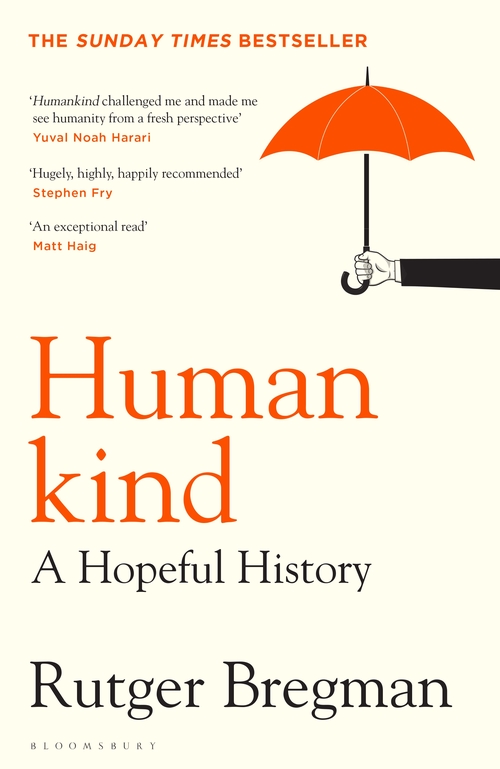 " title="We social psychologists really need to discuss "Humankind" by @rcbregman.I finished listening to audiobook yesterday. Putting aside inspirational message, I think social psychologists should read chapters regarding the classic findings in social psychology.Explanationhttps://abs.twimg.com/emoji/v2/... draggable="false" alt="👇" title="Rückhand Zeigefinger nach unten" aria-label="Emoji: Rückhand Zeigefinger nach unten">" class="img-responsive" style="max-width:100%;"/>
" title="We social psychologists really need to discuss "Humankind" by @rcbregman.I finished listening to audiobook yesterday. Putting aside inspirational message, I think social psychologists should read chapters regarding the classic findings in social psychology.Explanationhttps://abs.twimg.com/emoji/v2/... draggable="false" alt="👇" title="Rückhand Zeigefinger nach unten" aria-label="Emoji: Rückhand Zeigefinger nach unten">" class="img-responsive" style="max-width:100%;"/>




